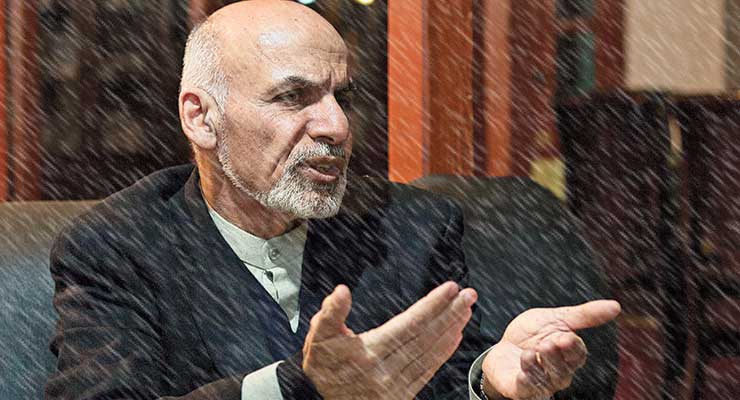
The newly appointed U.S Defense Secretary Ash Carter hinted at during a recent visit to Kabul on Saturday that the United States is open to changing its official plan of withdrawal from Afghanistan scheduled to be completed by the end of 2016. The US officially ended its combat on December 31st 2014 but fighting has yet to cease. The future of the poorest country in Asia is again being debated in Washington.
“The grounds for peace have never been better in the last 36 years. Our approach is productive, we’re helpful,” Afghanistan President Ashraf Ghani said at a press conference on Saturday. Ghani was elected to the Presidency in 2014 to replace Hamid Karzai, the first post- 9/11 era President of Afghanistan. US diplomatic and military figures have grown to see Ghani as a crucial partner in the fight against terror.
The concern about rising violence, however, comes from both the US and Afghanistan following a year of worldwide increases in the threat from terrorist attacks and the rise of radical Islamists like the Islamic State in Syria and Iraq. The Islamic State’s influence has spread through the Middle East mainly through its role in the Syria conflict, currently embroiled in a civil war that began in the spring of 2011 but quickly becoming among the most violent conflicts of the 21st century. The group has exploited the conflict by gaining territory throughout Syria.
When the Islamic State spread into Iraq, which remains unstable since the withdrawal of U.S troops in 2011, Afghan policy makers took note. “Our priority now is to make sure progress sticks. That is why President Obama is considering a number of options to reinforce our support for President Ghani’s security strategy including possible changes to the timeline for our drawdown of U.S troops” U.S Defense Secretary Ash Carter said during the press conference on Saturday, strongly hinting at the possibility that United States would keep a residual force more than the 5,500 U.S troops currently set to stay in Afghanistan.
The Islamic State has had difficulty making its way into Afghanistan as of yet, but there is serious concern in Washington and Kabul that if the US army leaves, there would be a replay of what happened in Iraq with insurgents taking advantage of the power vacuum to advance sending thousands of the newly-trained Iraqi army to flight, throwing down their weapons and fleeing.
“Deadlines concentrate the mind. But deadlines should not be dogmas. If both parties, and in this case multiple partners, have done their best to achieve the objects and progress is very real, then there should be willingness to re-examine a deadline,” President Ghani said in a recent interview with 60 Minutes.
Ultimately, whatever decision the United States and Afghanistan come to, it will be up to the Afghanistan army for it to shape their countries’ future and by shaping a better path for the poor nation. What ever is , it now seems that the consensus has become that to avoid repeating the failings of the Iraqi army, Afghanistan will need foreign military assistance for years to come.
Leave a Reply